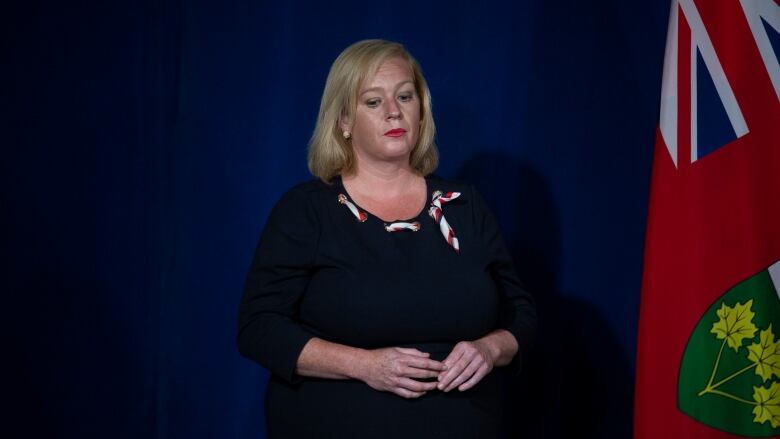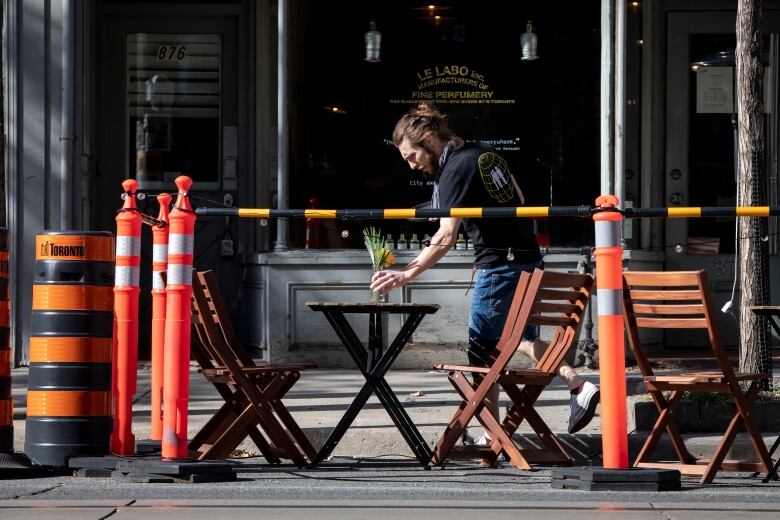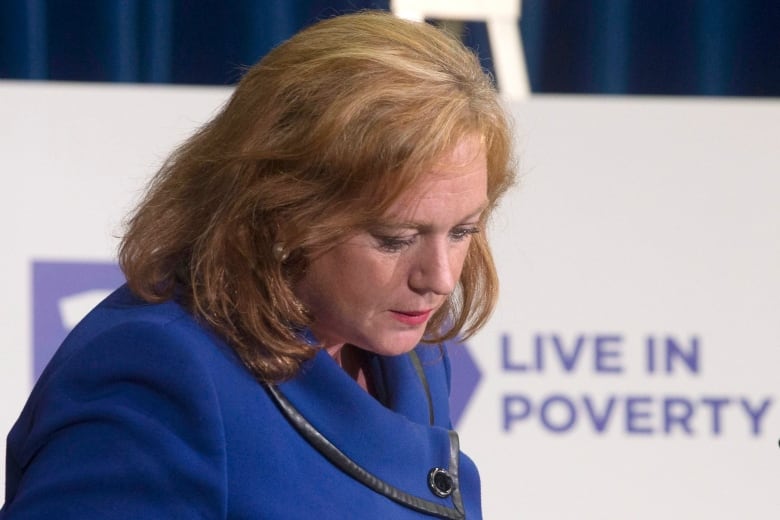Ontario election campaign a 'nightmare' while dealing with bipolar disorder, Lisa MacLeod says
'My mood wasn't stable and I had some very serious self harm thoughts'

Lisa MacLeod is speaking out about her struggles with mental health and a diagnosis of bipolar disorder after taking a step back from politics last summer.
The Progressive Conservative MPP for Nepean spoke on TVO's The Agenda with host Steve Paikin about the years she dealt with the problems while soldiering on.
CBC News made multiple attempts to reach MacLeodbut was unsuccessful.
"I think it was probably during the minority parliament between 2011 and 2014, and the only reason I say that now is I recognize I was losing my hair and I was probably in a state of mania," she said.
"But I definitely knew between 2014 and 2016 I was dealing with depression."
She said things came to a head in the first year after she became a cabinet minister, in June 2018.
None of this was on my bingo card.- Lisa MacLeod, Progressive Conservative MPP
"It took taking on a number of complex files that were very controversial," she recounted.
She ended up going to The Ottawa Hospital and speaking with a psychiatrist, "dealing with a whole host of issues, which I'm still dealing with now."
About two weeks after being re-elected inJunefor the sixth time in her career and on the same day she lost her cabinet postMacLeod announced she wastaking some time off to address her mental and physical health.
During the campaign, the Ontario NDP revealed MacLeod had received more than $44,000 in the form of an allowance from her Ottawa-area riding association over three years, including money to help pay for her housing.
Although it was legal, PC Leader Doug Ford said he was "frustrated" by it and would work with other party leaders to prevent the use of riding association funds for MPP allowances.
"Aftera couple of years, and in particular dealing with a very serious crisis during the election, it was really high time that I had to understand exactly what I have," she said.
"I knew it couldn't just be attributed to some of the trauma from around-the-clock police protection. My mood wasn't stable and I had some very serious self harm thoughts."
Election campaign was hardest of career

Trying to deal with her mental health during an election campaign was "the worst nightmare for a politician."
"I enjoyed my time in the cabinet, I enjoyed my time in the front bench in opposition. I love being at community events, but some days I can't get out of bed," she said.
"You're actually in the middle of an election campaign with your psychiatrist taking layers of you away and trying to depoliticize you as a politician."
She saidas minister of some of the hardest hit sectors of the economythrough the COVID-19 pandemic lockdowns, coupled with the pressure of being an Ottawa politician during the Freedom Convoy protests, she wasn't sure if she had it in her to continue in her position.
"I wrote myself a letter on Feb. 23and said I wouldn't run [in the 2022 election]," she said.
But, she said, time just kept going by and she ended up running again.
"It was a very tough one was my toughest of my six," she said.
"None of this was on my bingo card. It wasn't like, 'Oh yeah, let's spend our whole life, our family, sacrificing weekends and holidays just so in the middle of it allit'll blow up.'"
Getting help
MacLeod said the help she received came from a team of people including family, doctors and specialists, but even through that she said she has kept her sense of humour.
"I'm bipolar, or as Frank Sinatra would say, 18-karat, manic depressive."
She said she thought the diagnosis would be her "magic pill" but realized there was still work to do.
"Whatever they're going to give me, in my case, lithium is just going to cure me. And then thatdoesn't work either,because, you know it really is a cocktail that works for you and only you," she said.
"So over the last several months, it's been trying to find that rightprescription or cocktail or medicineand quantity that will stabilize me and put me on the path to success."

She said the diagnosis has been tough on her family, especially her husband.
"Joe's very involved in my electoral campaigns. He was actually the one who told my psychiatrist that I've been living with this, bipolar, and he had seen it for many years and so it's been very difficult on him."
MacLeod said when she told her daughter about her diagnosis, she already knew.
"She knew before I did, apparently," she said.
Though she was angry finding out she needed help with her mental health, MacLeod saidshe wants to focus on making sure people who need help get it, and aren't held back by a societal stigma.
"Someone who you think is strong and can do anything and is capable, could be sick. So maybe let's not judge people," she said.
"It's OK not to be OK, ormental health is health. That's not a slogan for just one day a year."












_(720p).jpg)


 OFFICIAL HD MUSIC VIDEO.jpg)
.jpg)



























































































